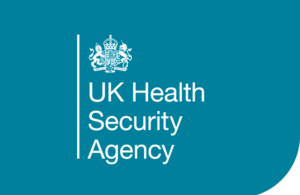WHO declares mpox outbreak a public health emergency of international concern
The UK Health Security Agency responds to the World Health Organisation declaring an mpox outbreak a public health emergency of international concern.

The World Health Organisation (WHO) has determined that the upsurge of mpox in the Democratic Republic of the Congo (DRC) and a growing number of countries in Africa constitutes a public health emergency of international concern (PHEIC) under the International Health Regulations (2005) (IHR).
The declaration follows advice of an IHR Emergency Committee of independent experts who met on Wednesday (14 August 2024) to review data presented from the WHO and affected countries. The committee considered the upsurge of mpox to be a PHEIC, with potential to spread further across countries in Africa and possibly outside the continent.
The emergence last year and rapid spread of a new virus strain in DRC, clade 1b, is one of the main reasons for the declaration. Currently, there are no cases of Clade 1 mpox confirmed in the UK.
The UK Health Security Agency (UKHSA) welcomes the move from the WHO to release funding to accelerate vaccine access for lower-income countries and support surveillance, preparedness and response activities.
Dr Meera Chand, Deputy Director at UKHSA, said:
The risk to the UK population is currently considered low. However, planning is underway to prepare for any cases that we might see in the UK. This includes ensuring that clinicians are aware and able to recognise cases promptly, that rapid testing is available, and that protocols are developed for the safe clinical care of people who have the infection and the prevention of onward transmission.
Common symptoms of mpox include a skin rash or pus-filled lesions which can last 2 to 4 weeks. It also can cause fever, headaches, muscle aches, back pain, low energy and swollen lymph nodes.
The infection can be passed on through contact with someone who has the infection or with infected animals.
People are advised to follow the NHS advice on mpox.